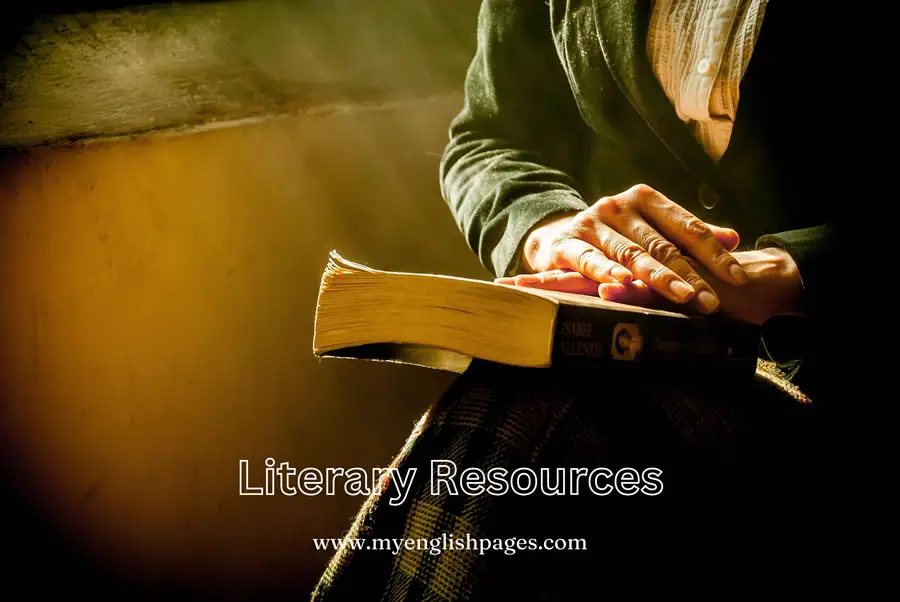Table of Contents
Introduction
Free literary guides are indispensable tools for students, educators, and book enthusiasts alike. Whether you’re preparing for an exam, leading a class discussion, or delving into the layers of your favorite novel, these guides offer valuable insights into themes, characters, and historical contexts. They serve as a bridge to better understanding and appreciation of both classic and modern literary works.
In this post, we highlight some of the best literary guides available online. These resources provide detailed analyses, summaries, and study tools to support your literature journey. Plus, we’ll share tips on how to use these free platforms effectively to enhance your learning experience.
Free Literature Guides

Discover nine exceptional literary guides that provide free literature study guides, resources, and in-depth analyses to support your exploration of literature
1. SparkNotes
SparkNotes is a well-known platform offering:
- Detailed chapter summaries and analyses.
- Explanations of key themes, symbols, and motifs.
- Study questions and essay ideas.
2. CliffsNotes
CliffNotes is this classic resource that provides:
- Expert summaries and character analyses.
- Historical context for literary works.
- Exam preparation materials.
3. Shmoop
Shmoop is a fun, student-friendly resource with:
- Engaging summaries and analyses written in a conversational tone.
- In-depth theme and character explorations.
- Learning guides for literature and poetry.
4. LitCharts
LitCharts is from the creators of SparkNotes, LitCharts offers:
- Visual literature guides with charts for themes and symbols.
- Side-by-side text translations of Shakespeare plays.
- Quick-reference PDFs for offline study.
5. Project Gutenberg
Project Gutenberg is a treasure trove for classic literature:
- Free eBooks of thousands of literary classics.
- Access to texts that are out of copyright.
6. eNotes
eNotes is an excellent resource for literary research, featuring:
- Study guides and critical analyses.
- Homework help from educators.
- Summaries of major works and poetry.
7. GradeSaver
GradeSaver is a platform that provides:
- High-quality summaries and analyses.
- Study questions and quizzes.
- Free essays and resources for literary studies.
8. Literariness.org
Literariness is a scholarly resource focusing on literary theory and criticism:
- Comprehensive explanations of key literary theories and schools of thought.
- Articles on literary movements, criticism, and notable theorists.
- Ideal for advanced literature students and enthusiasts of critical analysis.
9. NovelGuide:
One of the Free Literature Study Guides. NovelGuide is a comprehensive and free resource offering valuable literary analysis tools. Designed as an educational supplement, it’s perfect for students, teachers, and literature enthusiasts. Here’s what you can find:
- Literature Profiles: Summaries and overviews of notable works.
- Metaphor and Theme Analysis: Explore deeper meanings and connections within texts.
- Author Biographies: Gain insights into the lives and influences of famous writers.
- Sample Study Questions: Prepare for discussions or exams with thought-provoking questions.
- Sample Essays: Use well-crafted essays as a reference for your writing.
Tips for Using Literary Guides Effectively
- Focus on Metaphor and Theme Analysis: Use these sections to add depth and originality to your essays and class discussions.
- Utilize Sample Study Questions: Test your understanding of key concepts and prepare for exams or group discussions.
- Explore Author Biographies: Connect the text to its historical and cultural background to gain deeper insights.
- Review Chapter Summaries: Get a quick refresher on plot points to stay organized and on track with your reading.
- Compare Multiple Guides: Use different literary guides to gain diverse perspectives on the same work.
- Incorporate Critical Theories: Many guides include references to literary criticism; apply these theories to strengthen your interpretations.
- Create Flashcards for Key Themes: Use tools like Quizlet to turn important themes, symbols, and motifs into study aids.
- Take Notes While Reading: Highlight important points in the guide to align with your own analysis.
- Plan Your Time Wisely: Focus on the sections most relevant to your assignments or interests, such as character studies or contextual information.
Conclusion: Explore the World of Literature for Free
With the free literary guides listed above, studying literature doesn’t have to be a daunting or expensive task. These free literary guides provide the tools you need to analyze, understand, and appreciate both classic and contemporary works. They are perfect for students, teachers, or avid readers. These resources make literature accessible and enjoyable for everyone.
Start exploring today, and let these guides be your companions in unraveling the wonders of the literary world!


